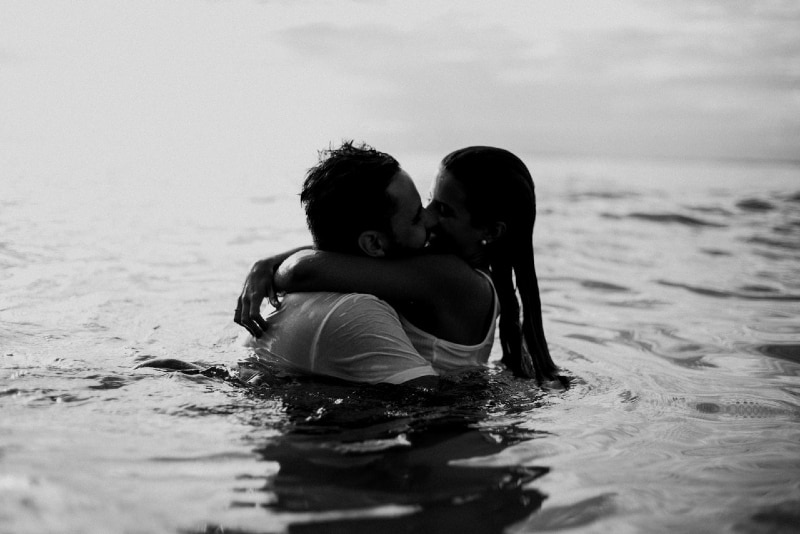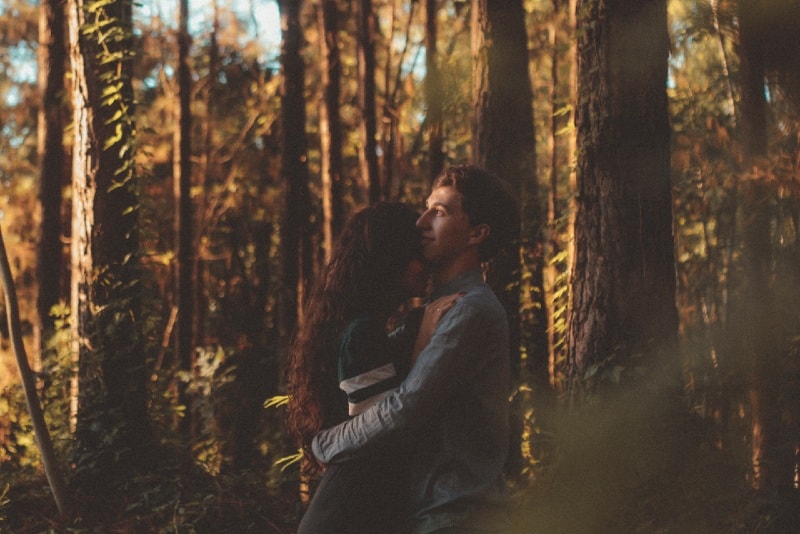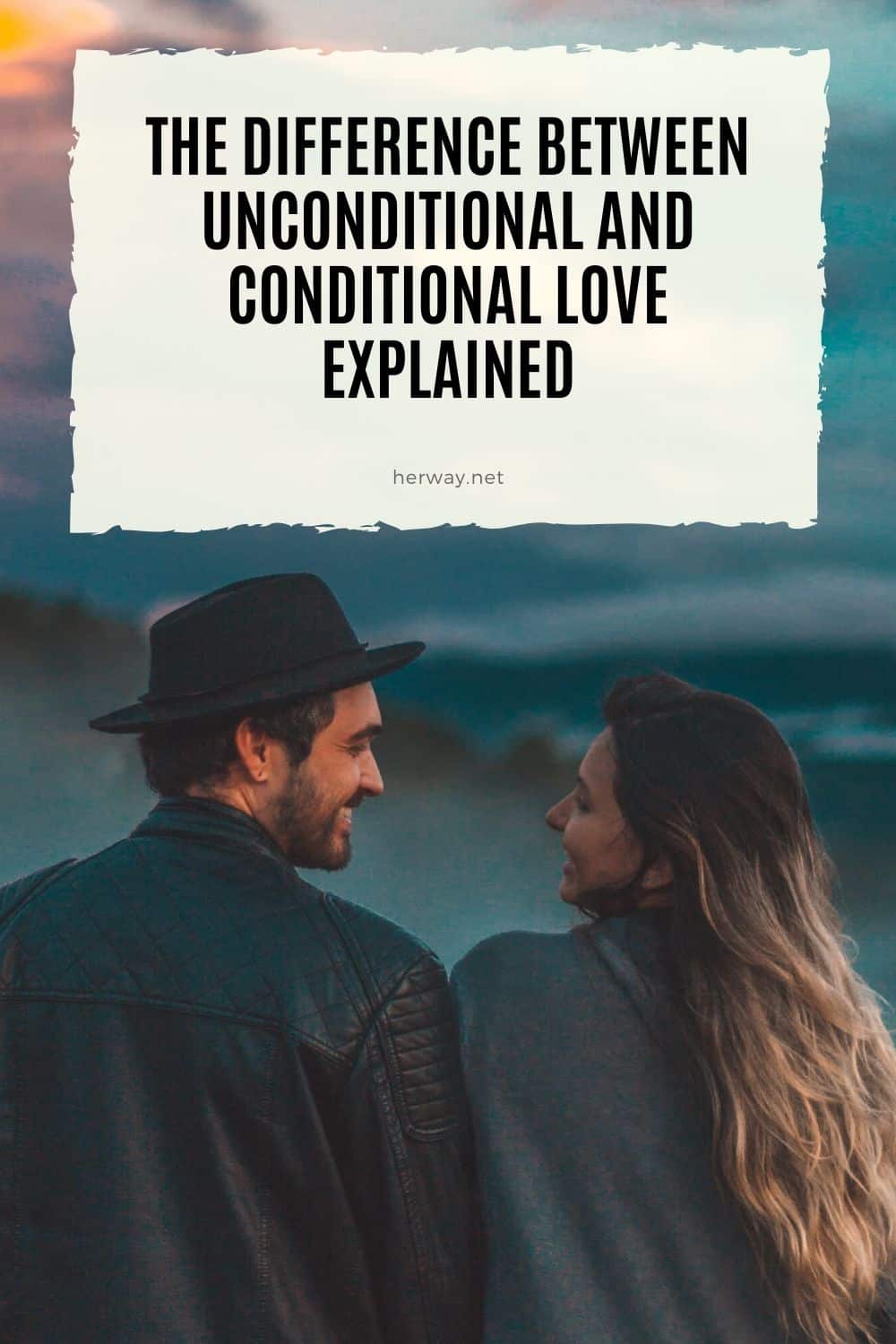Unconditional love vs conditional love
What’s the difference between conditional love and unconditional love?
Unconditional love, as the term suggests, is love without limitation. It’s the type of love that’s all accepting and unchanging.
Some would argue that calling it unconditional is redundant because all love should be unconditional, otherwise it’s not love.
On the other hand, conditional love is something opposite within itself because it suggests both – love, which should accept everyone as they are, and conditions – things that need to be fulfilled in order to be accepted.
The explanation sounds pretty clear, so where’s the problem?
The problem is the complexity of human beings. The mystery of their feelings – especially love. The inexplicable experience of its depth that can’t be just reduced to a few words.
So many experiences and feelings are swept under the name of love that we often ask ourselves: What is love?
Some say love is passion and that it should be wild and full of chemistry, make us shiver and willing to die for the person we love. Others say it’s platonic, refrained from physical touch, and lives only in the mind.
Some say we can experience love on our own through self-acceptance and feel complete, while others insist that true love is only possible in tandem or through others.
I would simply say that love is an intense feeling of deep affection that can grow in many directions.
Who’s right and who’s wrong? Let’s explore some more before we settle for one answer.
Conditional love: Are we egomaniacs or victims?
“Pride must die in you, or nothing of heaven can live in you.” – Andrew Murray
We come into this life unaware of self, others, and everything that surrounds us. The first people we meet are our parents and family members.
Our parents already have their unique personalities, meaning they have certain expectations, dreams, hopes, and ways they see reality.
Immediately after we’re born, we’re being shaped by their personal beliefs. In other words, we’re somehow destined to fit into something we yet know nothing about.
Still, the love between a mother and a newborn baby is the purest and strongest love there is because it doesn’t require anything from the baby. Nevertheless, that love still has limits and changes as the baby grows up.
I don’t want to sound dark, but think about situations where people rejected babies born with some kind of physical or mental defect.
They didn’t want them because they didn’t fit into their category of normal, or they weren’t ready to invest the amount of time and care that the baby needed.
On the other hand, there are people who would consider the same child a blessing and a teacher in disguise.
Before you start blaming your parents for loving you conditionally, understand that it’s not their fault, because they went through the same thing of having to meet the expectations of their parents and other people, and so on.
I’m not saying that all parents impose strict rules on their children, but that there certainly are rules we’re expected to respect in order to gain praise and approval, which translates into love.
And – you guessed it – that’s a condition. And that’s how we learn from a young age that fitting a role can give us the approval and love we need, and we expect other people to do the same.
This goes on in our teen years when we desperately want to be cool and accepted by our peers. We also start giving others rules and want our needs to be met in a proper way.
During teenhood, this behavior is often very dramatic and we’re noticeably more demanding.
Later in our adulthood, we slowly begin to learn about enjoying things in life more authentically.
However, for some (or should I say many?) people’s this-for-that principles stay the same; they just become more aware of what’s appropriate to do and say.
In other words, many people get stuck in either thinking that conditional love is the only way to go, or they don’t even know they’re loving conditionally.
Conditional loves come from the place of ego. What I mean by that is it comes from the desire to shape things according to ourselves, as we see things only through how they benefit us.
People who love conditionally hold others accountable to their expectations in order for them to gain their affection.
That sounds wrong, isn’t it? Yes, but we all do it sometimes.
We want others to act in a specific way and when they don’t, we get angry. In those moments, the line between love and hate seems extremely thin.
That’s exactly what conditional love is. It’s the small space where love ends and hate begins, and it goes back and forth depending on our mood and demands.
It doesn’t come from respect for others, but our own entitlement.
I’m right, you’re wrong. I can do this, you can’t. You should/shouldn’t do that if you want this. You have to do this in order to have that.
It’s full of shoulds and have-tos, and creates feelings of perpetual guilt and disappointment, which are not exactly good foundations for a healthy relationship.
In fact, when this kind of behavior is overemphasized, it indicates that a person is a narcissist.
Trying to control others is wrong. Limiting freedom is an attack on someone’s value as a human being. We’re not and never will be the authority in someone’s life. If we try, then it’s clear we’re into power play and not love.
This goes for all the small (and not so small) remarks we hear throughout our life. So, what are the clues of conditional love in everyday life examples?
“I know my parents love me, but they started treating me better since I got the job they approve of.”
”My parents/partners would scream at me when I’d do something like accidentally break a plate.”
“I know my parents love me, but they punish me when I get a bad grade.”
“If I wanted to marry someone outside of my race or religion, my parents would criticize or even disown me.”
“If you gain too much weight, I won’t be attracted to you.”
“If you keep going out with your friends without me, I’m going to leave you.”
These kinds of ultimatums have an awful effect on the mental health and well-being of a person.
They also get even more apparent and severe in a romantic relationship, especially after the initial spell of falling in love and rose-tinted-glasses effect fades off.
Romantic love is a catalyst because, unlike the family type of love, in this case, we choose someone based on our preferences and expectations.
Not only that, but at the beginning of the relationship, both parties usually try to behave way more perfect and conformant, which isn’t sustainable in the long run.
That’s exactly why lots of unaddressed issues come up between lovers. At the beginning of the relationship, we’re trying to be everything the other wants – and the other person loves that – but once we stop, problems start.
A committed relationship requires lots of work and lots of honesty.
In order to accept each other completely, two people need to see themselves as best friends and take care of each other’s needs without taking advantage.
A loving relationship is filled with understanding and constant self-examination.
Instead of making ultimatums, lovers should encourage each other to work on their personal growth and boost each other’s sense of authenticity and self-esteem.
Unconditional love: Divine love or agreeing on codependency?
“Loving and being loved unconditionally means taking a leap of faith.” – Andrea Miller
Unconditional love is the ultimate goal in life. It’s the closest thing we can fathom when it comes to grasping the meaning behind our life and existence.
Loving unconditionally means accepting others fully, and that includes mistakes, disagreements, different life choices, and opinions.
Unconditional love is a conscious decision to always express kindness, understanding, and respect to the people we love.
There’s even a concept in psychology called Unconditional positive regard that promotes an attitude of complete acceptance and love, and is used in therapy.
It’s based on acceptance and always seeing others as inherently human and inherently lovable despite their surface behavior.
Love doesn’t have to be earned or proven, as we love the person because of who they are and not what they do or say.
It adapts itself to the needs of others, it can be uncomfortable because it always challenges you, and it’s shown to the people who don’t expect it.
Letting go of our expectations, letting the other person be who they are and do the best they can do in the given moment – these are acts of unconditional love.
Everyone has a different learning curve and maturity levels are not the same for every person. There’s no point in making someone see the things the way you see them.
So, how do we practice this kind of love in everyday life?
Firstly, we need to make sure to practice self-love. Without self-love and knowing our own self-worth, we can’t go far.
To know our self-worth, we need to see ourselves from an objective yet compassionate point of view. In other words, we need to love ourselves unconditionally to be able to love others the same way.
With that being said, let’s not fool ourselves thinking self-acceptance is an easy thing to practice. It’s the hardest thing of all.
Escaping your own learned behaviors and toxic and self-deprecating mental patterns has to be the most exhausting thing there is, but it’s possible.
Secondly, we need to understand yet let go of harmful, outdated cultural norms and “right” behaviors, and see things for what they are behind the society-inflicted guilt and shame.
For example, a child having a tantrum in a public place shouldn’t be embarrassing because it’s normal and can happen to every child.
Having physical flaws doesn’t make anyone less worthy. Not being religious doesn’t make a person less good. I could go on.
Thirdly, we shouldn’t feel pressured to be perfect all the time, but we definitely should always admit our mistakes and apologize for them sincerely.
Attaining perfect love is a process full of learning, but it’s always worth it in the end.
Other than that, we should always try our best to recognize the love language of the other person.
It’s not enough to just say or observe things, we must act and be of help to our loved ones in ways that are beneficial to them personally.
Some people prefer words of affirmation to gifts, while others appreciate the quality time, acts of service, or physical touch.
But, what if we run into a codependent person who takes advantage of our love? Doesn’t all of this mean that less conscientious people can take advantage of us?
No, and for the simple reason I mentioned earlier – if we love others unconditionally, that’s only because we love ourselves first.
When we truly love ourselves, we are being authentic and don’t cross our personal boundaries, as we know to respect ourselves and see the true intentions of other people.
We can’t expect a relationship to be something mystical, perfect, and out of this world. No matter how hard we try, we’re still human and human relationships are based on benefit. There’s nothing wrong with that.
The bottom line is: We’re here for other people because we’re social beings. Our meaning is validated through the happiness we feel and give others.
What’s important is to recognize and give what we can give gracefully without making it a condition.
Unconditional love can’t be an excuse for unhealthy behavior and toxicity.
A person will never deliberately exhaust themselves in situations that don’t show any signs of progress. The thing is – we can always try to help and understand, but we can’t decide for another person.
Because the idea of unconditional love includes the concept of free will that’s been talked about since the beginning of time.
The idea of free will is godly, and that’s exactly why this kind of love is divine.
Examples of unconditional love in everyday life that we can all strive for
Allowing vulnerability and understanding when it comes to sensitive topics, instead of taking advantage and using it against the other person.
Having deep empathy – the capacity to understand or feel what another person is experiencing.
After a fight, the goal is to find a solution and understand each other, not to hurt each other.
Not being afraid of being shamed before admitting feelings about something.
Ability to forgive another person at all times.
Not proving yourself all the time, as you know your loved ones understand where you’re coming from, and even if they don’t, they try to.
Your partner’s selflessness inspires your own, and vice versa. You feel safe and cared for, and want to give back the same.
There’s no withholding affection; you show and receive affection in a natural flow.
Doing things without expecting something in return.
Not being afraid to be yourself completely and letting others do the same.
Inspiring people to be the best versions of themselves and seeing their full potential.
Genuinely celebrating the successes of other people and feeling happy to be part of their life journey.
Letting others go through the pain they need to experience, but being there for them.
Always telling the truth – no matter how uncomfortable it is.
Accepting people even when they’re not their best selves.
Feeling satisfaction just by loving.
Feeling content with what you have and thankful for loved ones in your life.
Feeling free to pursue things you’re interested in and passionate about, and letting others do the same.
Aiming for healthy solutions and not holding grudges.
Not being passive-aggressive, but addressing issues right away.
Having respect for another person, even when you disagree with them; having a discussion instead of fighting.
A healthy relationship is a priority.
Making extra effort when someone is going through a rough time.
Not taking bad moods and occasional rejection personally because you know they have nothing to do with you.
Being proud of other people for their achievements – small ones and big ones.
Letting other people enjoy the things they love, even if we’re not part of it.
Feeling gratitude for life, yourself, and the people who surround you.
Is unconditional love really possible?
“‘Do’ is a word of infinite actions.” – Norina Luciano
It’s understandable that highly idealistic ideas are regarded as impossible by some people. Everyone can understand the idea’s nobility, but it leaves them suspicious when it comes to real life.
Why? Because people are imperfect by default and everybody knows that. There aren’t many examples of such love in the life of an average man.
We all know how difficult it is to accept the things we don’t understand and always be kind.
Many of us try but end up disappointed when the idea doesn’t match reality. However, it is possible, and striving for that kind of love will transform our lives in many ways.
Insisting on mutual love, open and honest communication, and giving support will result in a love that’s powerful and immune to everything that’s happening outside of it.
Maybe we will never attain perfect love – or at least something we consider perfect love – but the goal is to ditch the pointless limitations and enjoy life and people as they are in reality: imperfect.
Unconditional love is the war on perfection. Nothing in nature is perfect, yet it still remains wonderful and miraculous. It’s the same with human emotions.
Perfection, as we imagine it in our head, is an illusion, but when things are done in love, that’s the closest to perfection we can get.
That’s why I encourage you to always practice love and compassion, wherever you go. Life’s full of surprises and hidden roads of fate that can lead you to places you never imagined.
All you have to do is be true to yourself and respect your heart as the guide.
Don’t worry if you sometimes fail. Every person battles with and for authenticity – a battle caused by social conditioning and choosing fear over love.
Don’t give up on ideals just because someone said they’re unattainable. Believe in your own experience and push your own abilities.
Because there’s no one like you. Never was and never will be. You truly don’t know what you’re capable of until you try.
Keep your mind clear, heart open, and whatever you do in life, just remember to:
Do all things with love.














